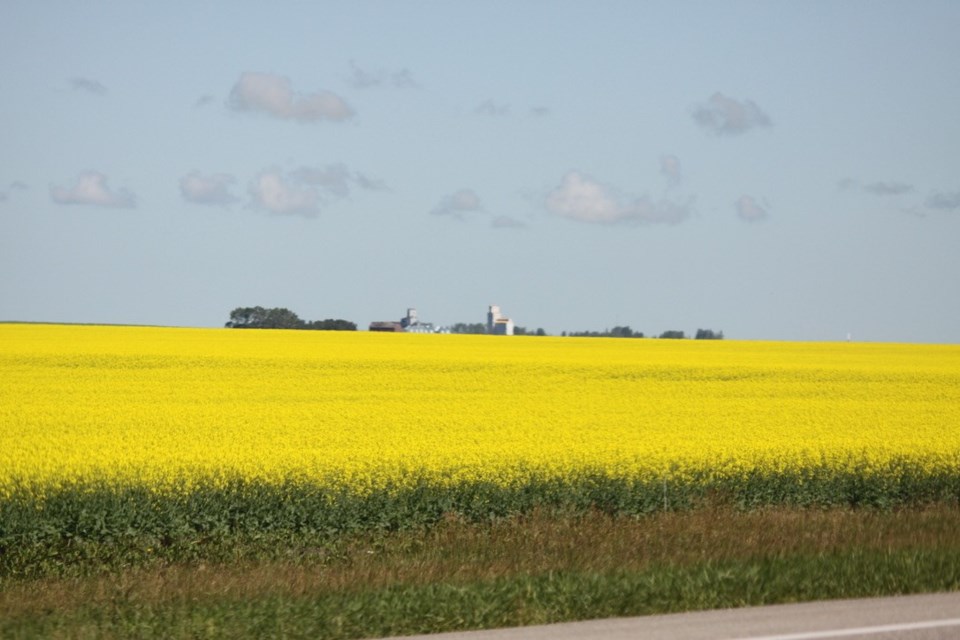Farming is not only an essential part of life and the food industry but a vital tool to feed our friends, families, and communities. Modern advances in the farming world have allowed us to grow vast quantities of food while ensuring the food is healthy.
The new technologies that are being used and created are extremely useful for farmers. These new technologies range from pesticides and GMOs to GPS guidance and plant breeding, though with these new technologies also come new issues and problems for our farmers to manage and fix.
Pesticides are a necessity to ensure that crops are managed and cared for in a correct manner. Without pesticides, it’s estimated that farmers globally would grow half as much food. Pesticides often have a negative connotation being seen as dangerous or unsafe to consume. This is untrue, Health Canada regulates organic and conventional pesticides to make sure they are safe for not only the people eating the food but the environment as well.
In Canada, there are six GMO crops that can be grown. These crops are canola, corn, potatoes, soybeans, sugar beets, and alfalfa. Six other GMO crops are apples, cotton, eggplant, papaya, squash, and sugarcane, though they are grown elsewhere around the world. The reason GMOs are used is because they are bred for benefits such as resistance to certain insects and diseases, herbicide tolerance, or enhanced nutritional value. Farmers have been growing the six Canadian GMOs for almost 25 years, and not a single case of illness has been credited to them. Health Canada also regulates all foods in Canada, including GMOs, to make sure they are safe to eat. Both GMOs and pesticides are used by farmers to get the most out of their land, without these tools our farmers would need 44% more land to grow the same amount of food.
Canadian farmers use many different precision agriculture practices, including the use of GPS guidance, drones, sensors, soil sampling, and precision machinery, to grow crops more efficiently. They also participate in activities like SWAT (soil, water, and topography) mapping, which gives farmers a greater understanding of the potential of the different areas on their farms. With these tools, the health of the crops can be managed and observed easily, as well as the health of the surrounding environment.
An issue that is a problem for all farmers is soil erosion. Soil erosion is naturally occurring and affects all forms of land. When talking about agriculture, soil erosion refers to the wearing away of the field’s topsoil. The reason soil erosion is a problem is that it affects crop emergence, growth and yield, and can even cause the plants to be completely uprooted. Protecting soil from erosion is essential to all farmers. Some of the ways they defend against soil erosion are to use crop covers to keep bare soil covered between cropping cycles, they also use berms or raised hills and buffer strips, and this will also prevent soil runoff from entering waterways. Luckily, more than 80% of farmland in Canada is at low risk of soil erosion.
Other things that provide a challenge for farmers include flooding, droughts, or increased salinity. This is because of their unpredictability and less than preferred conditions. Climate change also plays a role in food growth and because of this new plant breeding innovations are being used to make plants that are more suitable to survive difficult conditions.
With all these great advancements in the technology that farmers use, it wouldn’t be wrong to assume that food affordability is also getting better. Unfortunately, that is not the case.
Even before the COVID-19 pandemic hit, one in eight Canadian households was reported as food insecure. This means more than 4 million Canadians do not have the capability to access the food they need. Thanks to COVID-19, the cost of food was the number one concern in a 2020 survey of Canadians by the Canadian Centre for Food Integrity, with 51% of people saying that they had less money to spend on food due to COVID-19. Though this doesn’t mean that the technology isn’t working. If we didn’t have the plant science innovations that we have, prices would be 45% higher on average.
Farmers in Canada continue to grow and produce their crops so that Canadian citizens can eat them. Thanks to the innovations made, farmers can produce a vaster quantity of quality food a lot faster, and issues that were thought never to be solved can find a solution.


.png;w=120;h=80;mode=crop)

